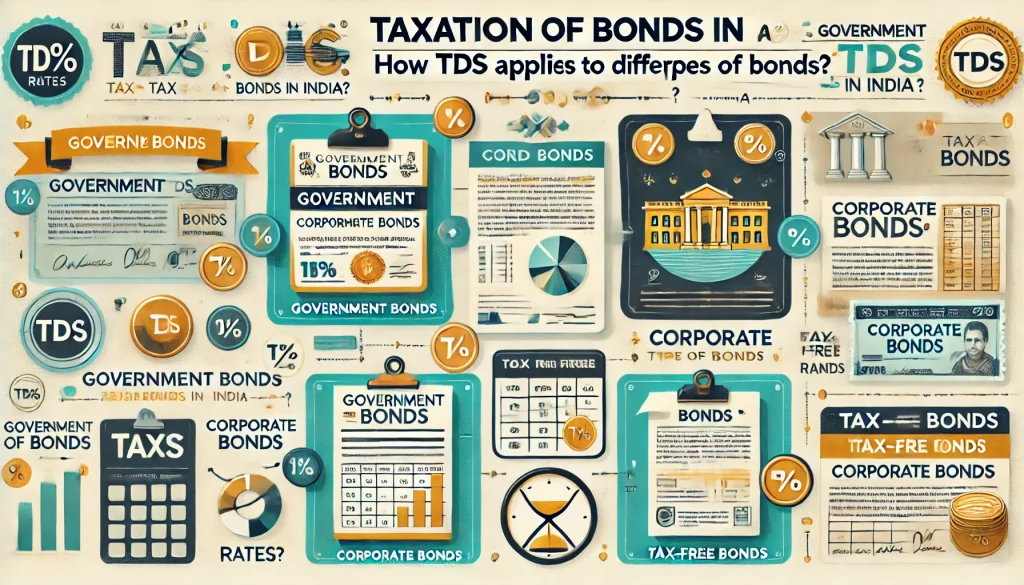
Government bonds are an excellent investment option for individuals looking for safe debt instruments. The Reserve Bank of India (RBI) issues these bonds on behalf of the Central Government. Several people search online on how to invest in govt bonds as they are attracted by their strong association with the credibility of the Indian Government. In this guide, we have covered this specific topic and also shared some proven tips for investing in bonds successfully online.
How to Invest in Government Bonds Online?
You can purchase government bonds by following either of the two following ways:
- Via a Bond Public Issue when the RBI first releases the bond in the market
- Purchase the existing bonds via secondary market brokerage platforms where they are listed like stocks
Here is a detailed guide on how to invest in govt bonds online:
Step 1: Complete the Signup Process on a Stock Exchange Platform
It is a mandatory step if you wish to invest in bonds. You can conduct research to choose a specific platform that aligns with your preferences.
Step 2: Complete KYC
Undergoing the KYC procedure is totally hassle-free and involves zero paperwork. As you do not need to upload any scanned document copies, the customer verification procedure gets over in less than 3-5 minutes.
Step 3: Navigate Through Curated Packs
To view the different available Government bonds, open the explore page and filter out government securities/SDL Bonds. Next, you can browse through the options and compare their maturity terms.
Step 4: Pick Your Choice
Now is the time to finalise a particular government bond so that you can proceed to the next page.
Step 5: Confirm the Related Details
To get detailed reports, you must click on the ‘Read More’ button. It will offer you specific bond issue reports such as interest payout frequency and how much your investment will grow over the tenure.
Step 6: Click on the ‘Buy’ Button to Confirm Bond Purchase
Eventually, you will see an option ‘Buy this Bond’. Click on it and provide your details in a form. Next, the designated bond managers will get in touch to complete the rest of the formalities.
After opening a demat account and following these steps, if you still face difficulties with the investing process, do not hesitate to call the helpline of your chosen platform.
Important Considerations for Investing in Government Bonds
Growing wealth by investing in government bonds is considered less risky than various other investment avenues. However, to yield the expected results, you must follow these essential tips:
1. Understand the Types of Government Bonds
The list of government bonds comprises different categories, each complimenting distinct characteristics and risk-return appetites. For instance, there are RBI-issued G-secs or Government Securities that are released as long-term bonds. Their maturity can range somewhere between 1 and 30 years.
Similarly, if you are looking for short-term investment options, then treasury bills and sovereign gold bonds can be two excellent options. Though they offer comparatively lower returns when compared to G-secs, you still have quick access to capital.
2. Assess the Investment Horizon
If you are more of an income-focused investor who is seeking long-term stability, the G-secs can be a great choice. They provide you with a fixed-interest income at regular intervals, and some are highly liquid, allowing you to trade them readily in the secondary market. Contrarily, for a short investment horizon, T-bills and SGBs attract investors more.
It is crucial to note that bonds having longer lock-in periods are more sensitive to inflation. Thus, you must assess the value of interest returns when planning these investments to achieve your financial goals.
3. Understand the Tax Implications
Interest earnings from bonds are subject to taxation as per your regular income tax slab. However, SGBs are an exception where if you hold these instruments for 8 years, the government does not impose any capital gains tax on maturity. This factor alone makes SGBs an appealing choice for tax-conscious investors.
4. Choose the Right Platform to Invest
Interested investors can purchase units of government bonds via RBI’s Retail Direct Gilt (RDG) platform. This website is quite simple and beginner-friendly, allowing all retail investors to directly access government bonds.
Alternatively, you can invest in government bonds through stock brokerage websites. Note that when you invest in some ETFs or mutual funds, you might be indirectly investing in government securities if those funds hold them.
Benefits of Investing in Government Bonds
Due to multiple reasons, investing in government bonds seems appealing to a large pool of investors. Here we have listed the most talked-about advantages:
- Low Risk
Government bonds are possibly the safest investment opportunities, provided the high credit rating of the Indian Government. Their chances of default are very low. Therefore, you can consider them safe for long-term capital appreciation.
- Regular Income
As an investor, you can expect consistent income from government bonds as they offer fixed-interest payouts at regular gaps. This feature is particularly helpful for retirees who may be dependent on a passive income source.
- Liquidity
In the secondary market, you can easily trade government bonds, thus deeming these securities as highly liquid. It is a boon for the investors as they can have greater control over their investments and leave their positions when they want.
- Portfolio Diversification
To mitigate risk and enhance portfolio performance, financial experts recommend including government bonds. Their low correlation with other assets helps diversify the portfolio and potentially dampen volatility.
Final Word
Clearing the concept of how to invest in govt bonds is just the start. If you are seeking long-term capital gains through bonds then it is crucial to understand the features of various types of bonds and how to effectively manage them in your portfolio. Meanwhile, keep this guide and stay in touch with respective bond managers for more information.


